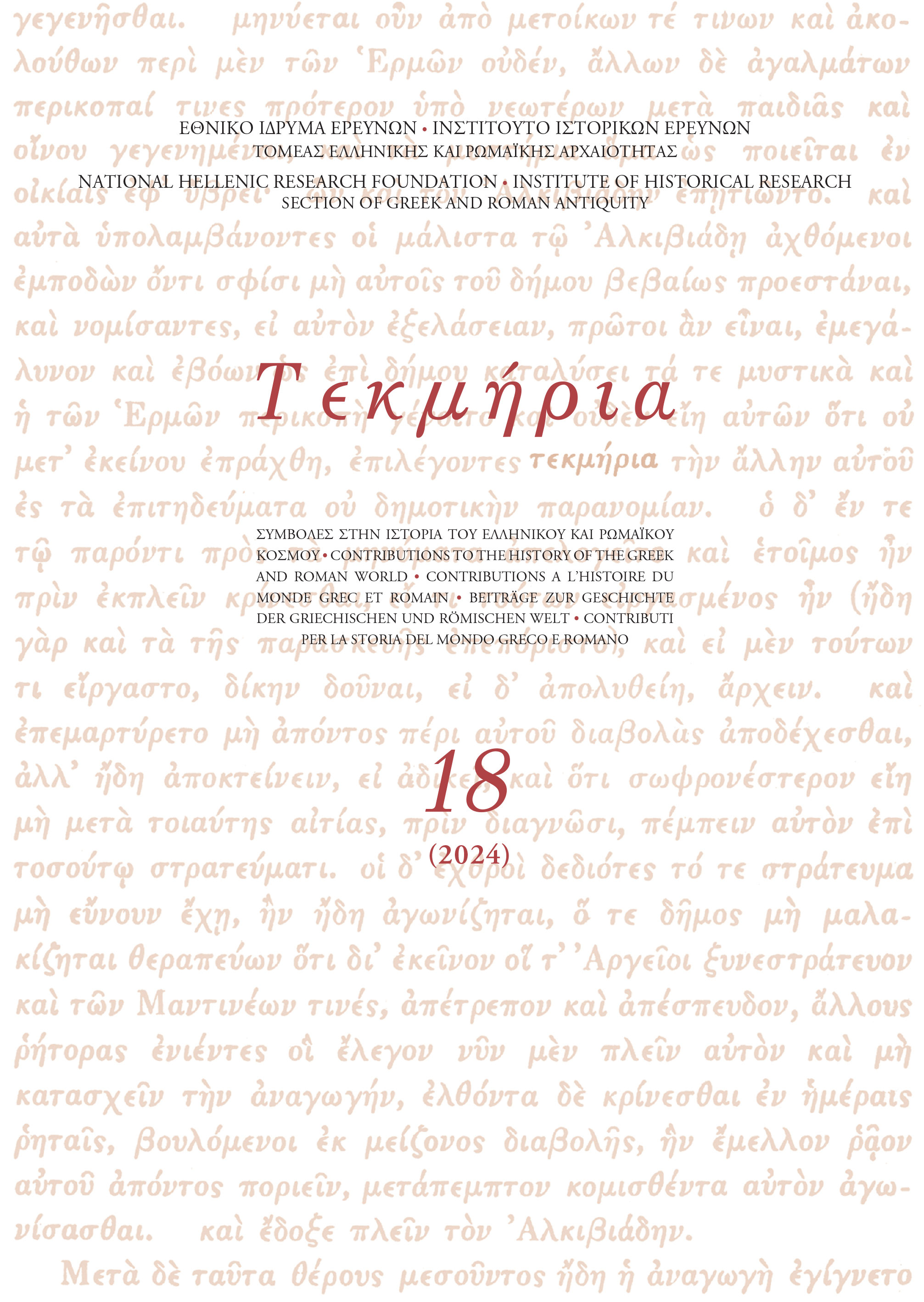Deconstructing a Prussian Myth: The Athenian Standards Decree (IG I3 1453a-g)
Abstract
This article analyzes the clauses of the Athenian Standards Decree, which has long been interpreted as banning allied cities from minting their own coinage. It interprets the Standards Decree not as a sign of Athenian imperialism, as previously thought, but as a technical financial measure aimed at streamlining tax collection within the empire. It examines evidence from mints, hoards, and Athenian financial documents that cast doubt on this traditional interpretation. Following other scholars who have questioned the conventional view, the article introduces additional evidence to support an interpretation of the decree as a purely financial measure. Oaths in treaties between Athens and her allies are examined to show that all restorations of capital punishment in the missing part of the Bouleutic Oath are untenable because the Council did not have the power to impose punishments over 500 drachms. The article rejects previous attempts to see an allusion to the decree in a passage from Aristophanes’ Birds (spring 414 BC) and to date it shortly before 414 BC, because of the manuscript tradition, ancient scholia, the passage’s meaning, and the decree’s purpose. Instead, the mention of four districts of the Athenian Empire and the inclusion of weights and measures alongside coinage point to a date in the autumn of 413 BC, coinciding with the introduction of the eikoste (a 5% tax). The article argues that through this decree, Athens attempted to increase revenue and to collect significant quantities of Attic currency. How- ever, this measure did not last long; Athens reintroduced the tribute system most probably sometime after the decisive sea battle of Cyzicus.
Article Details
- How to Cite
-
Psoma, S. E. (2024). Deconstructing a Prussian Myth: The Athenian Standards Decree (IG I3 1453a-g). Tekmeria, 18, 231–282. https://doi.org/10.12681/tekmeria.38341
- Issue
- Vol. 18 (2024)
- Section
- Articles

This work is licensed under a Creative Commons Attribution-NonCommercial-ShareAlike 4.0 International License.
Copyright
The copyright for articles in this journal is retained by the author(s), with first publication rights granted to the journal. Authors who submit articles to this journal confirm that third-party intellectual property rights are not violated in any way. By virtue of their appearance in this open access journal, articles can be used freely, with proper attribution, for educational and other non-commercial purposes. The National Hellenic Research Foundation retains the right to publish papers that appear in ΤΕΚΜΗΡΙΑ in any form, including electronic, the journal may assume in the future. It also retains the right to deposit articles published in ΤΕΚΜΗΡΙΑ in its institutional repository.
Sample attribution: Author, article title, first published in ΤΕΚΜΗΡΙΑ, Vol. No., Year, Pages.




